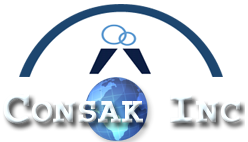Session 1
- Introduction to Project Leadership
- Differentiation between leadership and management
- Three management styles project managers use
- Trait Theory
- Fiedler’s Contingency Model
- Four different leadership styles used in the Leader’s Window to your current practices
- Own leadership orientation
- Assessing employee potential
- Leading new employees
- Leading experienced employees
- Section review questions
- Describe the Communication Loop
- List obstacles to effective communication
- Define the interpersonal gap
- Show how to be an active listener
- Section review questions
Session 2
- Influence Skills
- Behavioral Scores
- Influence Styles of Project Managers (Socializers, Directors, Thinkers, Relaters) –Their characteristics and Strategies
- Power and Project Manager
- Section review questions
- Popular motivational theories (Maslow, Herzberg, Mccleland)
- Identifying your own motivators
- Proposed directives to motivate team members
- Design a plan to overcome morale problems based on a case study
- Vroom Expectancy theory
- Rewards – Intrinsic and Extrinsic
- Section review questions
Session 3
- Identify effective team member roles-Belbin’s Team Roles
- Examine the strengths and weaknesses of the roles on your team (including your own)
- Tuckman stages of project team development
- Team process and functional teams
- Taking over and first week with a function Team
- When to coach
- Effective coaching requirements
- Section review questions
- Reasons for change
- Challenges of change
- What is change management
- Identify the project manager’s role as an organizational change agent
- Influencers of organizational change
- Rogers’ theory representing change over time
- Process of organizational change
- Keys to successful change management
- Section review questions
- Common causes of conflict
- Constructive and destructive conflicts
- Conflict reactions to avoid
- Ways to resolve conflict
- Human reaction in times of conflict
- Staying calm in conflict situation
- What is negotiation
- Attitudes about negotiation
- Successful Negotiation
- Formal project negotiation planning
- Section review questions
- Define ethics and values
- Differentiation between personal and business ethics
- Identifying the four values addressed in the Project Management Institute Code of Ethics and
- Professional Conduct
- Section review questions
